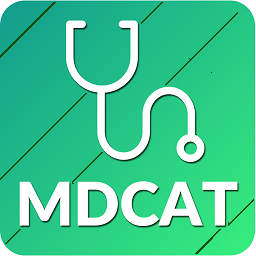PMDC Charts Path to Redesign MDCAT Assessment Process

Pakistan Medical and Dental Council PMDC is considering significant changes to the Medical and Dental College Admission Test MDCAT, including the adoption of an e-assessment system. This initiative, set to launch next year, aims to enhance the transparency and efficiency of the exam. Unlike traditional internet-based tests, the proposed format will involve center-based assessments utilizing secure portals provided by the Higher Education Commission HEC to prevent security breaches. The students can get latest updates regarding PMDC Plans Major Reforms in MDCAT Exams System.
Reform Committee’s Strategy for Improvement
To address challenges in the existing MDCAT framework, a seven-member Reform Committee, with representation from all provinces, recently held its first meeting. The primary goals include resolving persistent issues, implementing IT-driven solutions, standardizing the syllabus, and determining whether the test should be centralized or managed by individual universities.
Highlights of the Meeting:
Modernizing Assessments: The introduction of an e-assessment system aims to foster a more advanced testing environment that evaluates critical thinking, ethical reasoning, and complex problem-solving skills.
Standardized Curriculum: A unified syllabus is under development to reduce inconsistencies across regions and create a fair testing platform.
Strategic Scheduling: Conducting MDCAT immediately after intermediate examinations is intended to reduce the influence of private tuition centers.
Data Review: The committee analyzed detailed statistics from the 2024 MDCAT, including the performance of participating universities and insights on the 167,772 candidates, including those from overseas centers in Dubai and Saudi Arabia.
Addressing Examination Irregularities
Following reports of misconduct and out-of-syllabus questions in the most recent MDCAT, the Sindh and Islamabad High Courts ordered retakes of the examination in their jurisdictions. PMDC President Prof. Dr. Rizwan Taj acknowledged the shortcomings and reaffirmed the council’s commitment to ensuring integrity in the examination process moving forward.
Formation of Specialized Committees
The PMDC has established three sub-committees to oversee specific aspects of the reform process:
Curriculum Development Sub-Committee: Focused on creating a uniform syllabus, a Table of Specifications, and a robust database of questions.
E-Assessment Implementation Sub-Committee: Responsible for designing a secure digital testing platform with detailed cost estimates and technical specifications.
Policy Development Sub-Committee: Tasked with drafting a comprehensive examination policy to guide future MDCAT assessments.
Advancing Educational Standards Across Pakistan
The Inter-Boards Coordination Commission IBCC has introduced a nationwide examination guide known as the Examination Bible to standardize testing for grades 9-12. The commission also highlighted the success of multiple-choice-based digital exams, reinforcing the viability of e-assessments for MDCAT and advocating for modern grading methods in board examinations.
Roadmap for MDCAT Reforms
The PMDC has committed to presenting a finalized plan for the MDCAT reforms by December 2024. Sub-committees are expected to submit their proposals within the same timeframe, with subsequent reviews scheduled to refine the strategies. Prof. Dr. Rizwan Taj reiterated the council’s focus on addressing systemic flaws and ensuring a fair, transparent, and reliable examination process for all aspiring medical and dental students.















